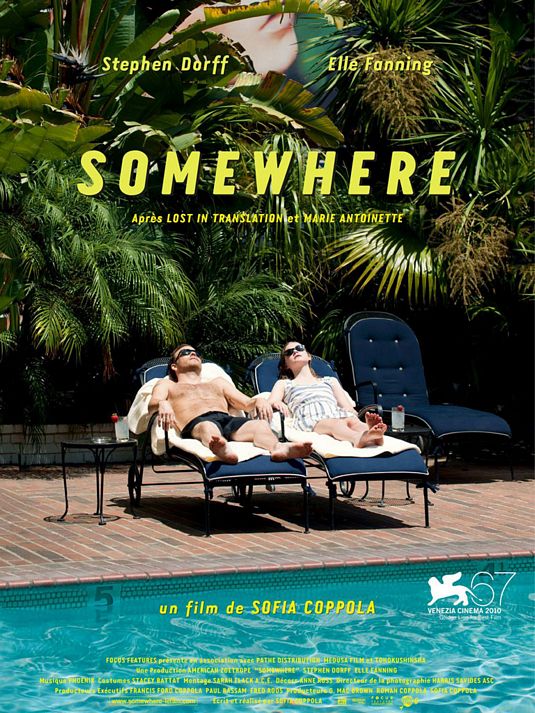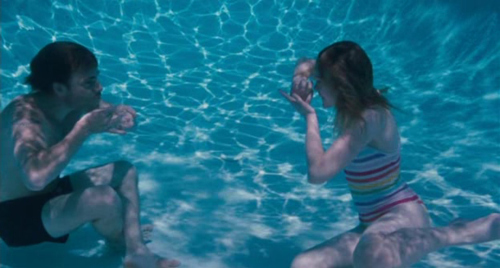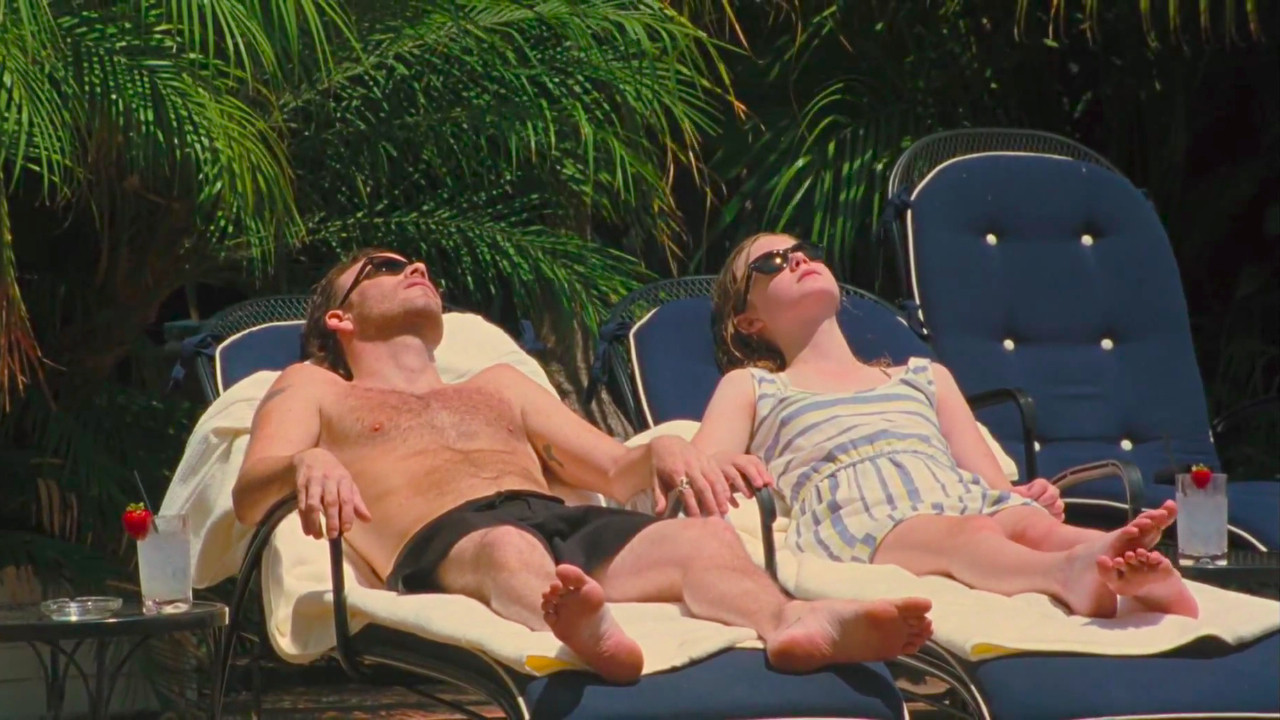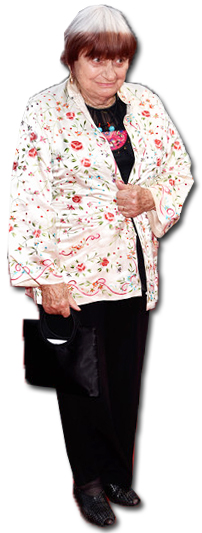Anne Marie's Sofia Coppola chapter of 'Women's Pictures' has reached its finale. Next month: Agnes Varda!
 Sofia Coppola month has been enlightening. I don't know that we've tackled a director as polarizing as Ms. Coppola on Women's Pictures to date, and I've enjoyed reading the varied reactions readers have had to her films. For that reason, and because of the more prominent autobiographical inspirations, the final movie of Sofia Coppola month is Somewhere, the often-overlooked 2010 dramedy.
Sofia Coppola month has been enlightening. I don't know that we've tackled a director as polarizing as Ms. Coppola on Women's Pictures to date, and I've enjoyed reading the varied reactions readers have had to her films. For that reason, and because of the more prominent autobiographical inspirations, the final movie of Sofia Coppola month is Somewhere, the often-overlooked 2010 dramedy.
Somewhere distills the themes Coppola has employed throughout her career, putting them in service of a story that rings clearly from the writer/director's personal experience. After all, before she was Sofia Coppola, Academy Award winning screenwriter and respected director, she was Sofia Coppola, daughter of famed auteur Francis Ford Coppola. She had a firsthand account of how major celebrity can free a person and also trap him, and those contradictions resonate through her entire ouvre. In Somewhere, Coppola gives us a glimpse into the monotony of celebrity that is mostly devoid of easy sentiment. Whether you want that glimpse or not determines how likely you are to enjoy slow-paced movies about wealthy stars having existential crises. To bastardize a line from an old classic: with (films about) the rich and mighty, always a little patience.

If you have that patience, you get what might be Sofia Coppola's most unusual film. The story of a star (Stephen Dorff) who lives at the Chateau Marmont in a haze of sex and alcohol isn't a particularly new one, but Coppola delivers it with frankness. For all of the criticisms of Coppola for being a self indulgent director, Somewhere is not a self indulgent film. It lacks the immediate visual pop of its predecessors, with nary lavender sneaker nor a rosary to be found. The camera is less probing, content instead to stay fixed in one spot, disinterestedly watching scenes unfold or unravel as Johnny drifts through life. Surreal visual moments do occur - the film opens with an arresting shot of Johnny's Ferrari spinning in and out of frame around an empty racetrack - but they are the exception in a sea of center-framed medium close ups. When Johnny's daughter arrives unexpectedly on his doorstep, the camera becomes a bit more active, as if to signal to the viewer that this is the part of Johnny's life worth paying attention to.
Elle Fanning plays Cleo, the daughter, and she is the strangest combination of childish and mature. With her self-possession and easy grace, she seems twice or three times her age, but her smile, scraped knees, and poor posture reveal how young she is. It's a little freaky to watch, but works well for the film, since her character's combination of adult posturing and kid mannerisms speak volumes about a childhood raised by absentee parents. Through Italian awards shows, eggs benedict, and guitar hero, she slowly bonds with her father. Near the end of the film, during a shot of the two sunbathing side-by-side, the camera pulls back, using a rare movement to show that here, in this moment, both are content to be alone together.

Shots like this are what makes Coppola the kind of writer/director that she is. Though Somewhere's third act dissolves into cliche, the preceding hour shows a director who remains committed to creating character through visual moments, exploring similar themes over and over even as she approaches them in new ways. THE BLING RING, her latest film, would continue this trend, and regain some of her lost luster. With three upcoming projects, including Bill Murray's Christmas special an adaptation of The Little Mermaid, Coppola's work looks to be ever-expanding. Whatever she does next, it's bound to be worth talking about.

Next month on Women's Pictures...
 We celebrate Mother of the French New Wave and recent Cannes Lifetime Achievement Award winner Agnes Varda!
We celebrate Mother of the French New Wave and recent Cannes Lifetime Achievement Award winner Agnes Varda!
6/4 - La Pointe Courte (1956) - Varda's feature debut mixes melodrama with documentary when examining one couple's marital problems. (Hulu+)
6/11 - Cleo from 5 to 7 (1962) - A seminal work of the French New Wave, Cleo from 5 to 7 follows an entertainer in real time as she waits for her test results to determine whether she will die. (Hulu+)
6/18 - Le Bonheur (1965) - Varda's most provocative film tells the story of a married man's affair with a postal worker. (Hulu+)
6/25 - The Gleaners + I (2000) - Jumping forward in time and away in genre, this documentary was Varda's exploration of poverty in rural France. (Amazon Prime)